Nursing Professional Assignment: EMR, Informed Consent, Parents
VerifiedAdded on 2022/12/18
|5
|935
|27
Homework Assignment
AI Summary
This nursing assignment explores three key areas within the healthcare field: computer-generated medical records (EMRs), informed consent, and parental rights regarding medical procedures. The assignment analyzes the advantages and disadvantages of EMRs, highlighting their impact on patient care, medication prescription, and efficiency, while also acknowledging potential security and cost concerns. It then delves into the ethical and practical considerations surrounding parental consent for life-saving procedures, recognizing parents' emotional responses and potential knowledge gaps. The assignment also examines the importance of informed consent, emphasizing the healthcare professional's responsibility to provide comprehensive information about treatment procedures, risks, and benefits to enable patients to make informed decisions about their health. The assignment references several studies and articles to support its arguments and provide a well-rounded perspective on these critical aspects of nursing practice.
1 out of 5
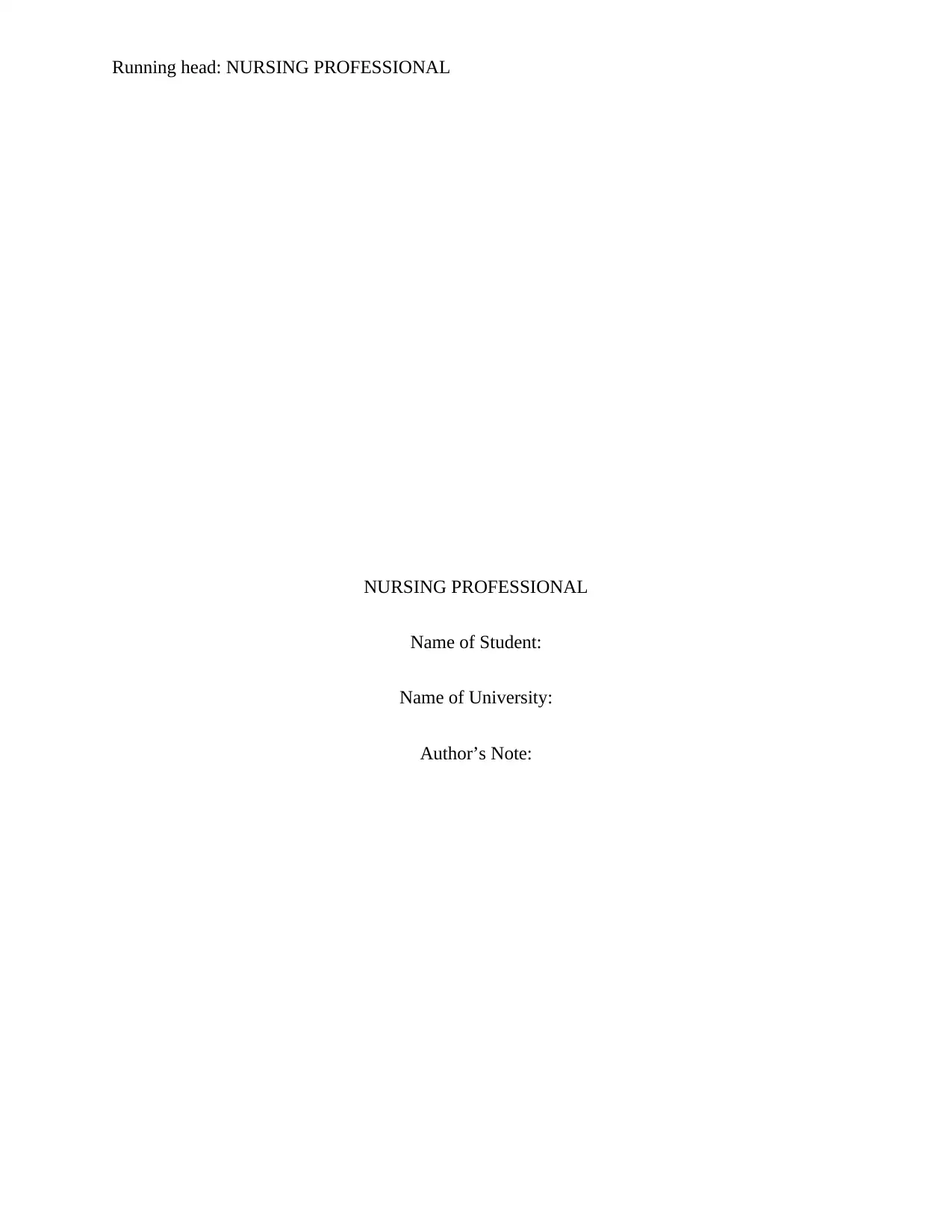
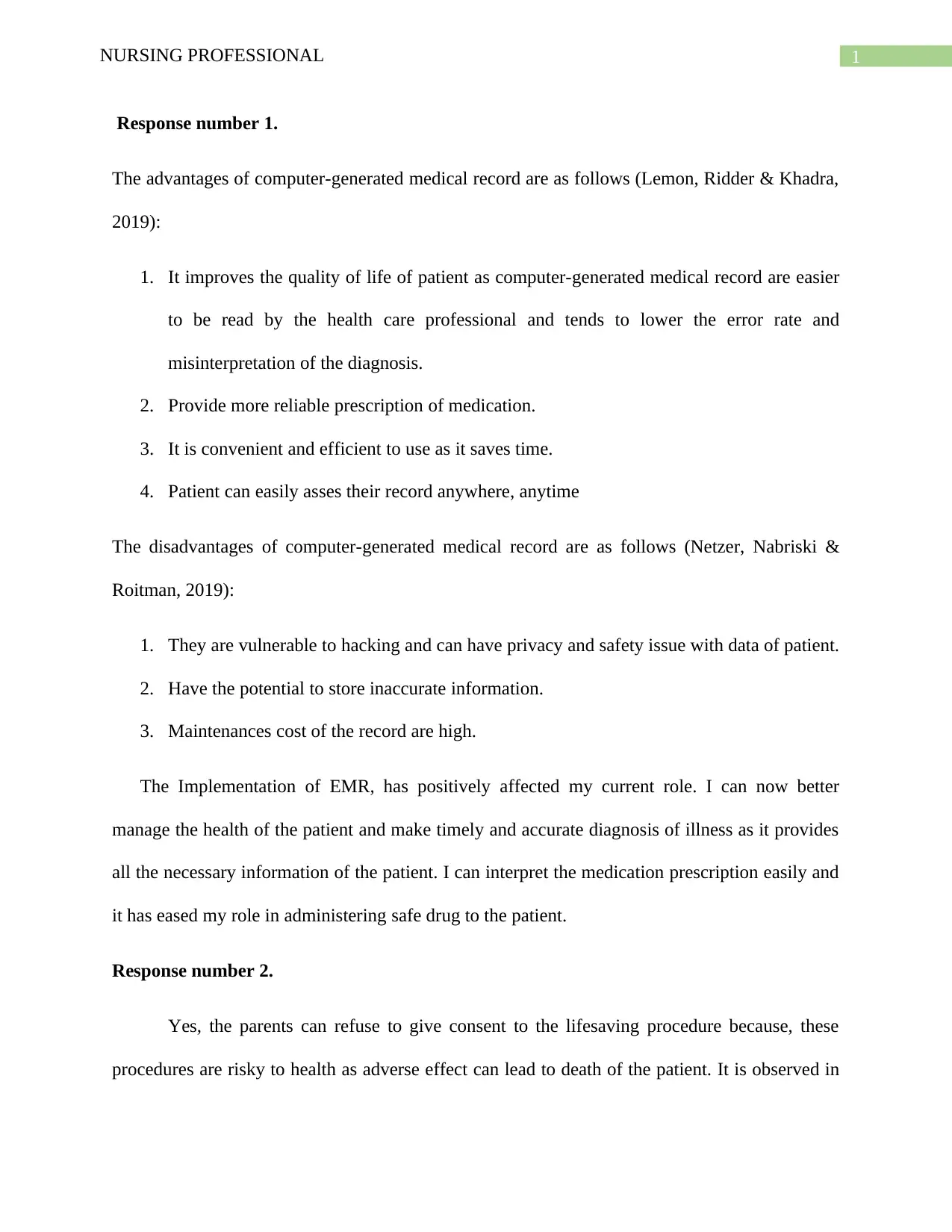
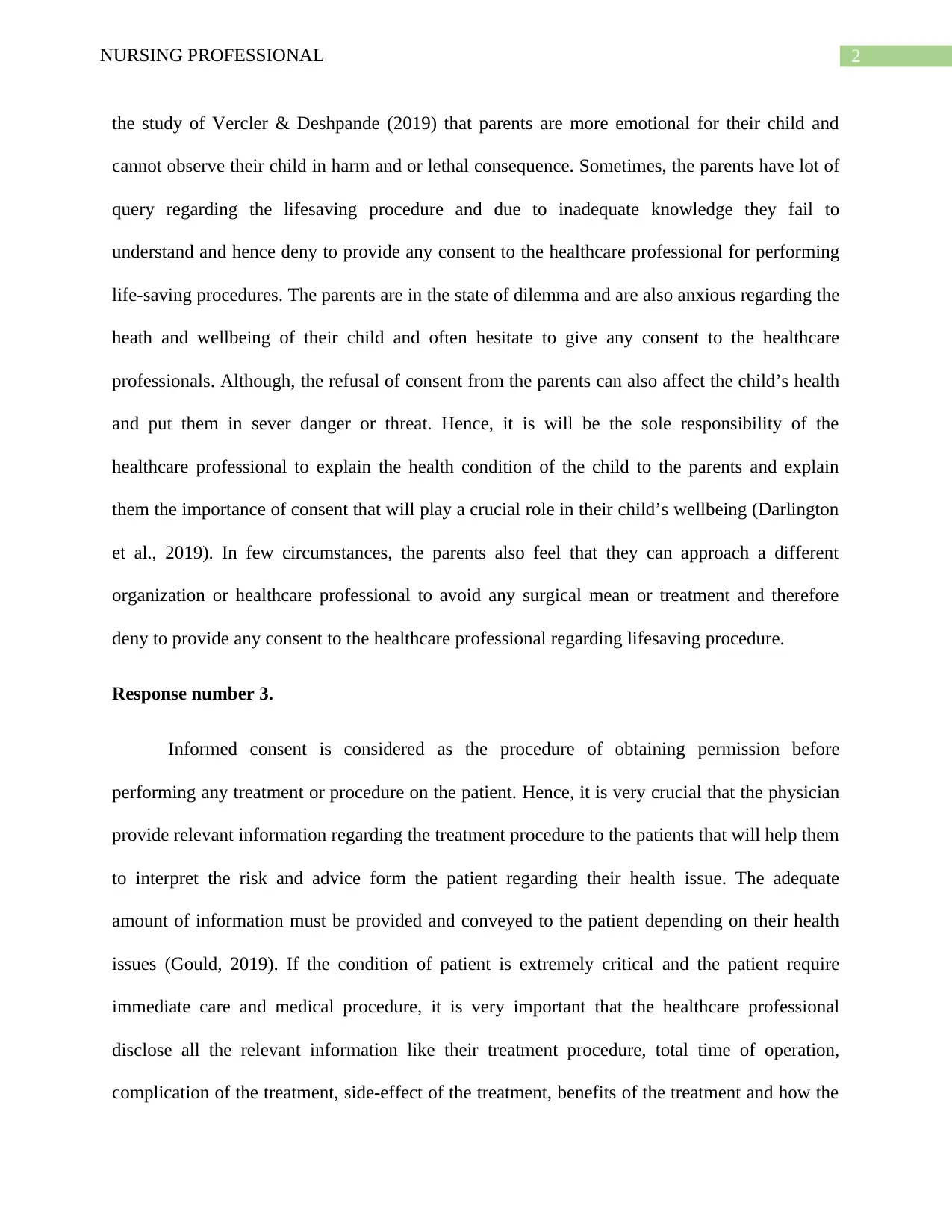

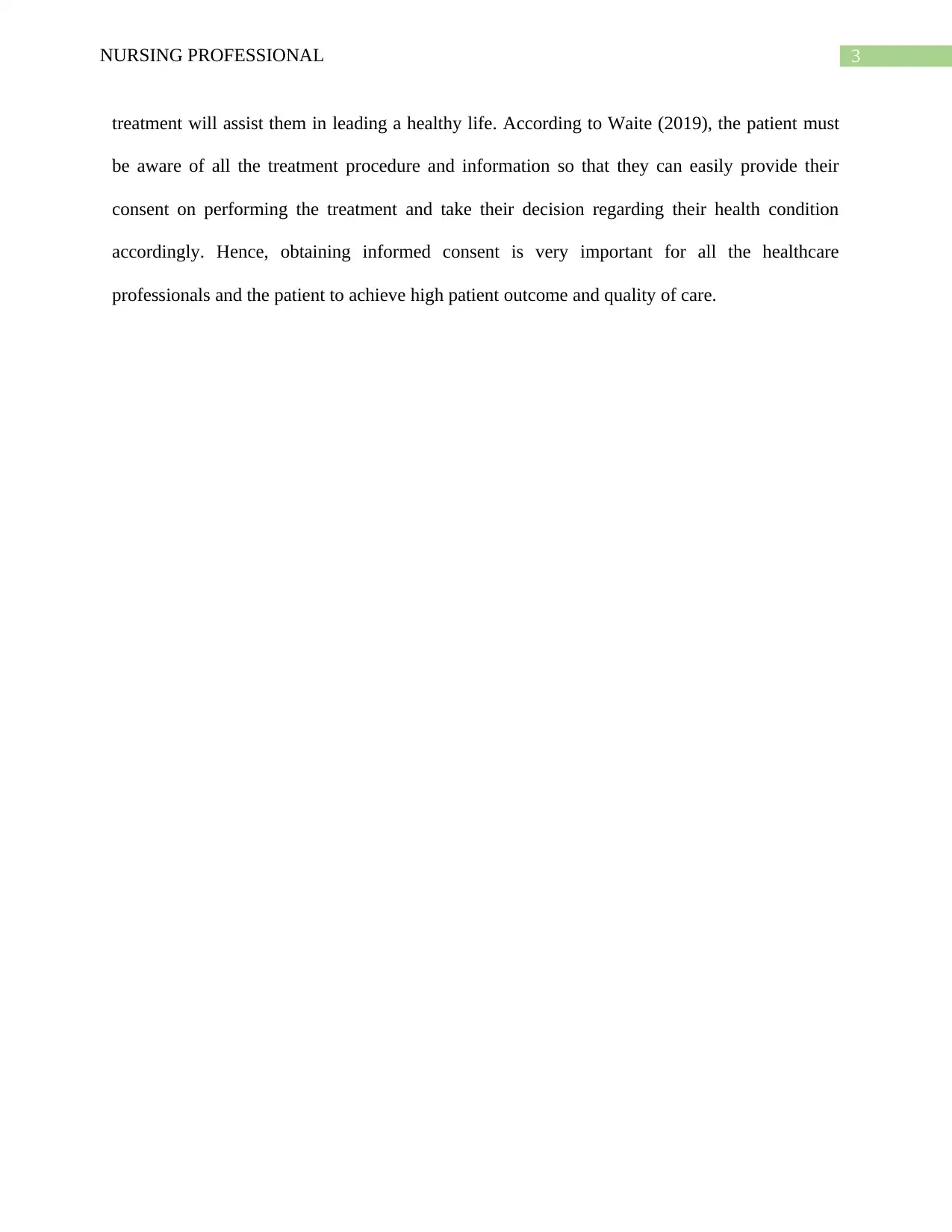
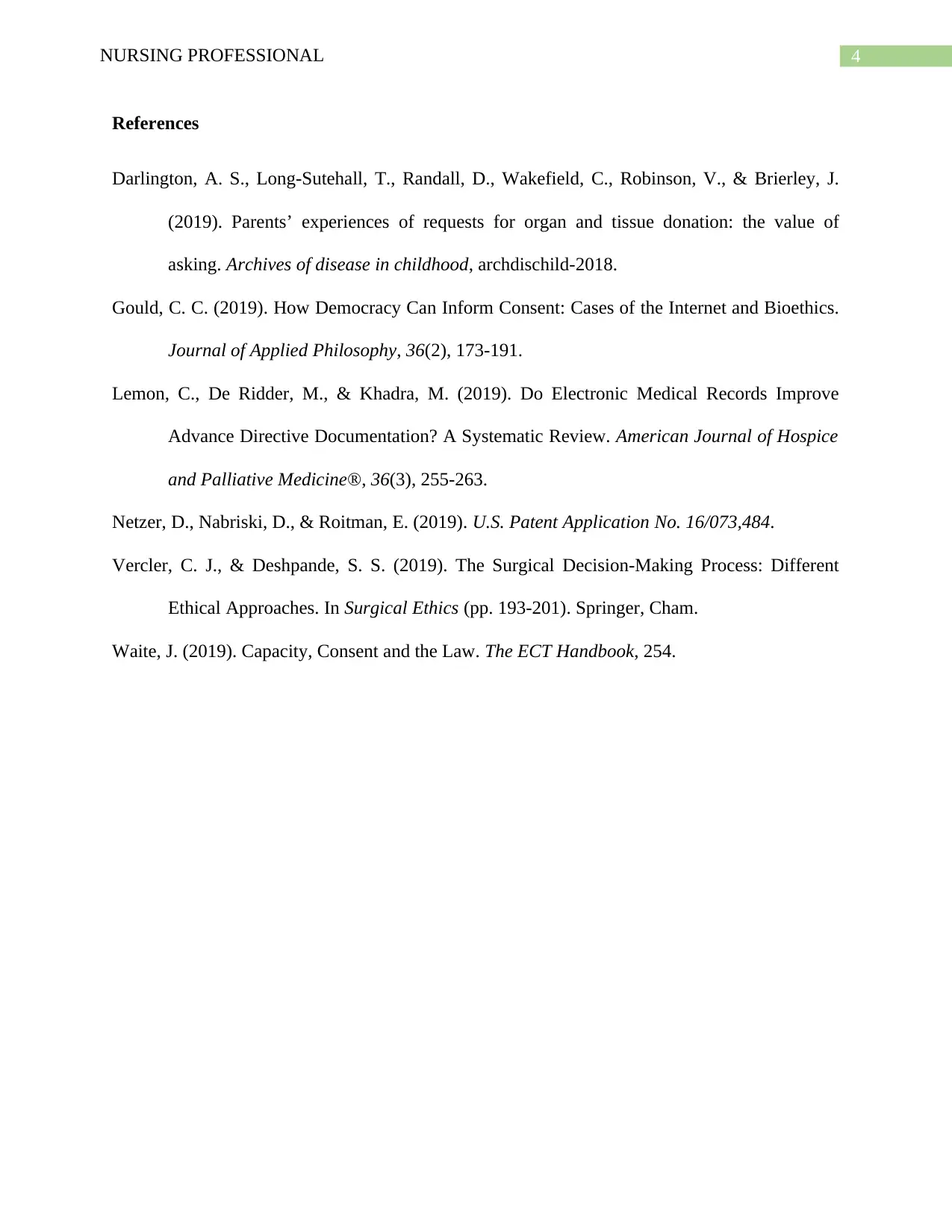






![[object Object]](/_next/static/media/star-bottom.7253800d.svg)